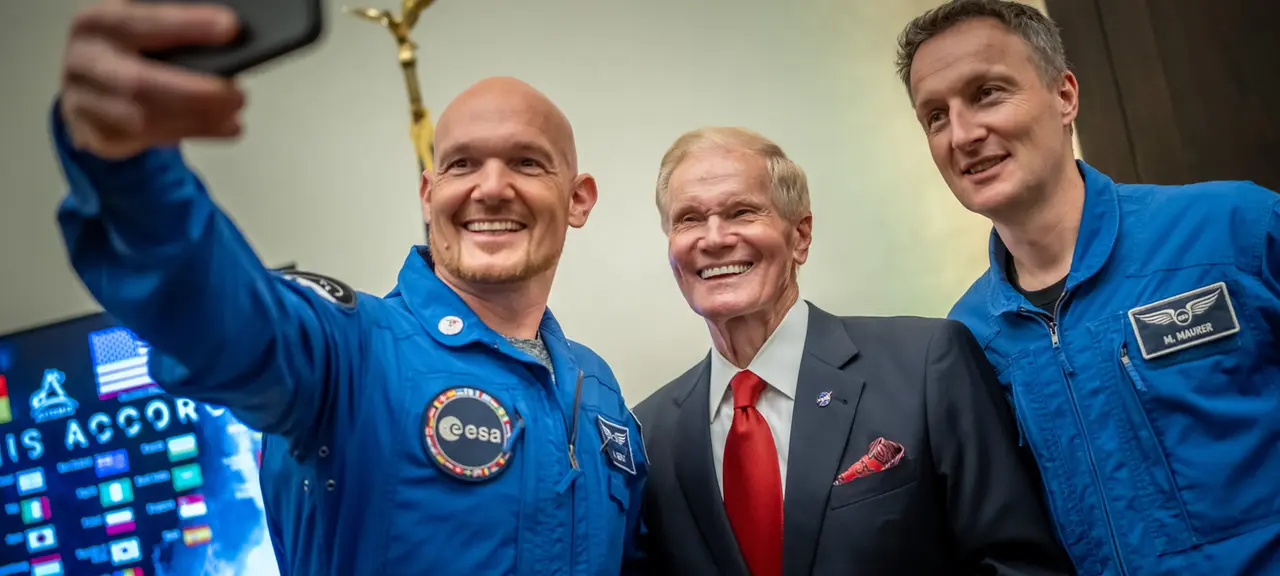Germany joins the "Artemis" space agreement.
-
MVN050 -
September 17, 2023 at 3:24 PM -
0 Comments -
1,310 Views

Germany has joined the international "Artemis" initiative, becoming the 29th country to do so, in order to play a more significant role in the current lunar and Martian exploration efforts, primarily led by the United States. The Director-General of the German Aerospace Center (DLR), Walther Pelzer, signed the agreement at the German Embassy in Washington. Pelzer emphasized that Germany and the United States have been "successful partners in space exploration for a long time." German space industry companies are already making a "significant contribution to NASA's Artemis program" for lunar landings. Pelzer stated that Germany's signing of the 'Artemis Accords' will provide new momentum to the joint effort to conduct space exploration programs.
The signing ceremony in Washington was attended by the German government's space coordinator, Anna Christmann, the German Ambassador to Washington, Andreas Michaelis, and NASA Chief Bill Nelson. Nelson welcomed Germany "into the family of 'Artemis Accords'" and noted that Germany has long been one of NASA's closest and most capable international partners. He emphasized that the signing shows that Germany is playing a leading role now and in the future, in a future characterized by boundless opportunities in space and the promise of goodwill here on Earth.
The NASA-led Artemis program involves a coalition of global allies and private companies for its implementation. The signing of the agreement is seen as a diplomatic act through which participating countries align their space policies and standards in cooperation with the United States. Besides Germany, other countries that have joined the agreement include the United Kingdom, Japan, Italy, and Canada. Russia, a long-standing partner of NASA in the International Space Station (ISS), had considered participating in the Artemis program but ultimately chose the Chinese lunar program instead.
The Artemis program was launched in 2019 with the goal of returning astronauts to the Moon by 2027. Multiple short- and long-term missions under the program aim to use the Moon as a testing ground for spacecraft. The "Artemis Accords" also establish principles for cooperation in the peaceful civilian exploration of space and the use of the Moon, Mars, comets, and asteroids.
Critics accuse the United States of seeking to cement its dominance in space through the agreement and of wanting to exert significant control over the use of the Moon and Mars. As a result, there are calls for establishing international space regulations under the auspices of the United Nations.

